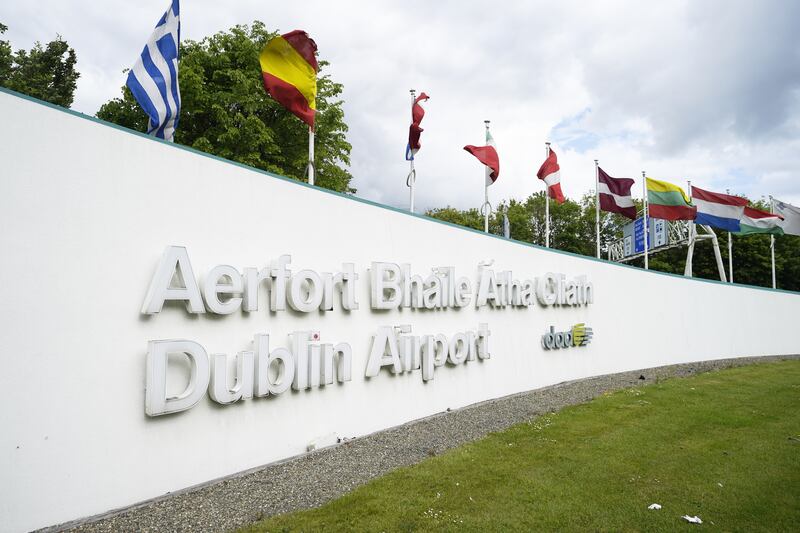A minister has apologised to passengers for the disruption caused by a failure of Border Force e-gates.
MP Tom Pursglove also said there is no indication of “malicious cyber activity” behind the fault.
Airports including: Heathrow, Gatwick, Edinburgh, Birmingham, Bristol, Newcastle and Manchester, were impacted by the failure on Tuesday evening.
Border officials were left to manually process travellers instead, with images and footage shared on social media showing long queues forming at passport control at several airports.

During a ministerial statement in the Commons on Wednesday, Mr Pursgolve told MPs that an investigation had determined the incident was caused by “technical issues within the Home Office network.”
He said: “The relevant teams quickly swung into action, and a technical response was underway within six minutes. Once the fault was identified, officials worked closely with partners to rectify the problem and restore service.”
He added: “At this stage, I can assure the House and the wider public that all security checks were maintained throughout. Border security was not compromised at any point and there is no indication of malicious cyber activity. Police access to operational systems was unaffected.”
He further stated: “I sincerely apologise for the disruption that occurred. I can assure the House that the Home Secretary and I will be unswerving in our determination to ensure that every possible lesson is learned, to ensure that this does not happen again.”
Shadow Home Office minister Dan Jarvis said the e-gate system is “no longer reliable enough” in light of its most recent failure.
He told the Commons: “I’m sure that the House will agree that the chaotic scenes across many of the UK major airports last night are unacceptable. Not least, given e-gates have failed on several occasions in recent years.
“The system collapsed at the start of the late May bank holiday weekend in 2023 because of a failed system upgrade and, in 2021, technical issues caused the gates to fail three times in two months.
“That is unacceptable and it brings into sharp focus how the current high capacity eGates system is no longer reliable enough and risks further damaging public trust in the Government’s management of our border security.”
He added: “Britain’s border system should at all times allow lawful entry into our country and stop illegal entry. The safety and security of our country depends on it.”
Mr Jarvis also joined with Mr Pursglove in paying tribute “to the passengers who waited patiently for many hours, some of them after very long flights”.
Mr Pursgolve said the response of border force was evidence that “overall the contingency plans did work”.
He said: “Proper checks were undertaken in the way that you would expect, just not in the automated manner that people would wish to see, with greater manual processing of cases but relying upon the underlying systems.
“Again, it demonstrates that the contingency plans that we put in place for incidents like this, were robust, that they did work.”
Mr Pursglove said there was a “permanent fix” for the specific technical issue that caused the fault on Tuesday evening.
He added: “When it comes to general e-gate reliability, over 90 million passengers use eGates each year and we’re world leading in their use. This is an extremely rare occurrence.”
E-gates are automated border gates that use facial recognition to check the identity of a person in order to let them enter the UK without talking to a Border Force officer.
According to the Government’s website, there are 270 of them in total at 15 air and rail ports in the UK.









